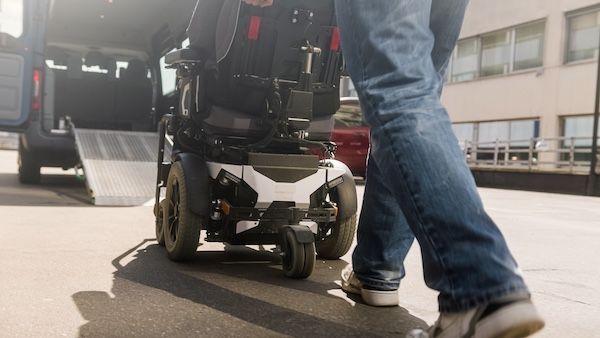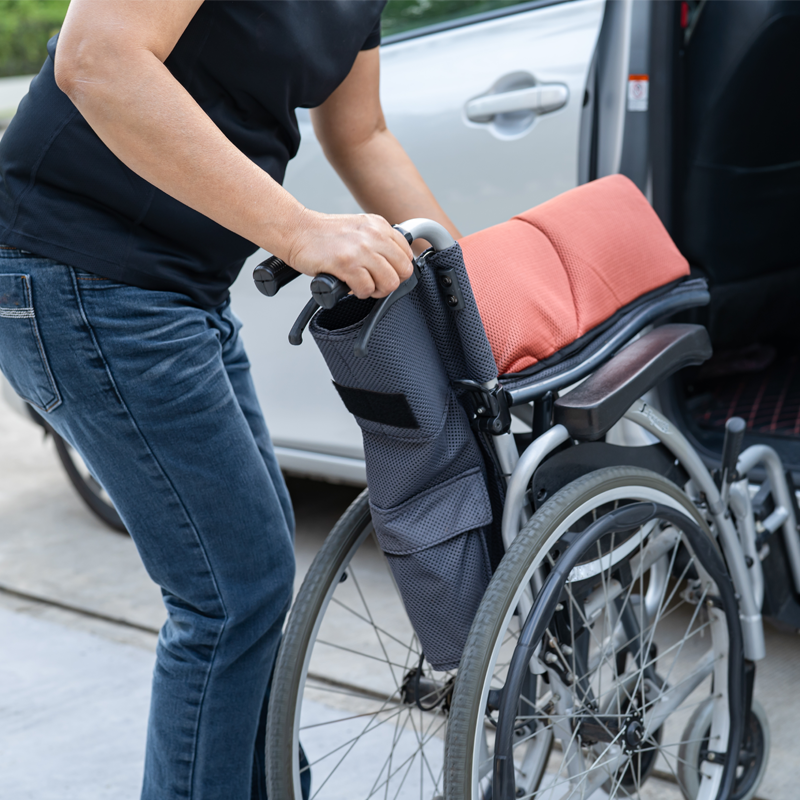Ways to Improve Mental Health in a Wheelchair
If you're a wheelchair user, it's easy to feel alone in the world. You may be dealing with chronic pain, limited mobility, or other physical disabilities. But what about your mental health? Are you taking care of your mind and body in the same way that you take care of your wheelchair or other equipment? There are a few things that you can do every day to improve your mental health and get back on track.

Think about your mental health in the same way you think about your physical health.
In a wheelchair, you're more likely to be affected by stress, anxiety, and depression. While it's important to remember that your mental health is just as important as your physical health, it can be hard to see this at first glance.
- Recognize that your mental health affects how you feel about yourself and others
If you are experiencing these feelings or symptoms often enough that they interfere with your daily life, it's time to seek help from a professional. Remember, you are not alone!
Take Care of Yourself
As a wheelchair user, your body is in a very different position than someone who can walk. It's important to take care of yourself by eating healthy and getting enough sleep. You also need to manage stress so that it doesn't cause you any problems in the future.
It's easy to neglect your mental health when you have physical challenges like pain or fatigue from using a wheelchair all day long. But don't make this mistake! Your mental health matters just as much as your physical health does--and if either one isn't doing well then neither will be able to function properly on its own merits alone.
It's perfectly normal for people with chronic illnesses like MS or other neurological disorders (like spinal cord injuries) to feel depressed sometimes; however, there are ways that we can manage our moods better through exercise routines such as yoga classes or swimming lessons at community centers near where we live which offer free classes every weeknight evening during summer months when temperatures outside start rising higher than 80 degrees Fahrenheit around noon time when most people wake up from sleeping during morning hours before heading off into work mode again later afternoon after lunchtime snacks break period ends early afternoon so everyone has plenty opportunity throughout the day
Make time to see friends or have a connection with someone who helps boost your mood.
It's important to have people in your life who care about you, and who can help with difficult times. To find these people, try joining a social group or club that interests you. If there are none available in your area, consider creating one!
You should also make sure that when those connections are made, they're maintained over time. This means keeping in touch with friends regularly through phone calls or emails; setting up monthly meetups for lunch; sending birthday cards; sending holiday gifts... whatever makes sense for both of you (and isn't too much work).
Practice self-care every day, such as using relaxation techniques or meditating.
Self-care is an important part of managing your mental health. It can help you feel more in control of your life, cope with stress and anxiety, sleep better, manage pain, and even improve the quality of your relationships.
- Meditation
- Breathing exercises
- Progressive muscle relaxation (PMR)
We encourage you to remember that there are many ways to improve mental health in a wheelchair and make yourself happier. You don't have to have an active lifestyle or travel around the world; all it takes is getting out of bed every morning and doing something small every day that makes your life better!
Think about your mental health in the same way you think about your physical health.
In a wheelchair, you're more likely to be affected by stress, anxiety, and depression. While it's important to remember that your mental health is just as important as your physical health, it can be hard to see this at first glance.
- Recognize that your mental health affects how you feel about yourself and others
If you are experiencing these feelings or symptoms often enough that they interfere with your daily life, it's time to seek help from a professional. Remember, you are not alone!
Take Care of Yourself
As a wheelchair user, your body is in a very different position than someone who can walk. It's important to take care of yourself by eating healthy and getting enough sleep. You also need to manage stress so that it doesn't cause you any problems in the future.
It's easy to neglect your mental health when you have physical challenges like pain or fatigue from using a wheelchair all day long. But don't make this mistake! Your mental health matters just as much as your physical health does--and if either one isn't doing well then neither will be able to function properly on its own merits alone.
It's perfectly normal for people with chronic illnesses like MS or other neurological disorders (like spinal cord injuries) to feel depressed sometimes; however, there are ways that we can manage our moods better through exercise routines such as yoga classes or swimming lessons at community centers near where we live which offer free classes every weeknight evening during summer months when temperatures outside start rising higher than 80 degrees Fahrenheit around noon time when most people wake up from sleeping during morning hours before heading off into work mode again later afternoon after lunchtime snacks break period ends early afternoon so everyone has plenty opportunity throughout the day
Make time to see friends or have a connection with someone who helps boost your mood.
It's important to have people in your life who care about you, and who can help with difficult times. To find these people, try joining a social group or club that interests you. If there are none available in your area, consider creating one!
You should also make sure that when those connections are made, they're maintained over time. This means keeping in touch with friends regularly through phone calls or emails; setting up monthly meetups for lunch; sending birthday cards; sending holiday gifts... whatever makes sense for both of you (and isn't too much work).
Practice self-care every day, such as using relaxation techniques or meditating.
Self-care is an important part of managing your mental health. It can help you feel more in control of your life, cope with stress and anxiety, sleep better, manage pain, and even improve the quality of your relationships.
- Meditation
- Breathing exercises
- Progressive muscle relaxation (PMR)
We encourage you to remember that there are many ways to improve mental health in a wheelchair and make yourself happier. You don't have to have an active lifestyle or travel around the world; all it takes is getting out of bed every morning and doing something small every day that makes your life better!











